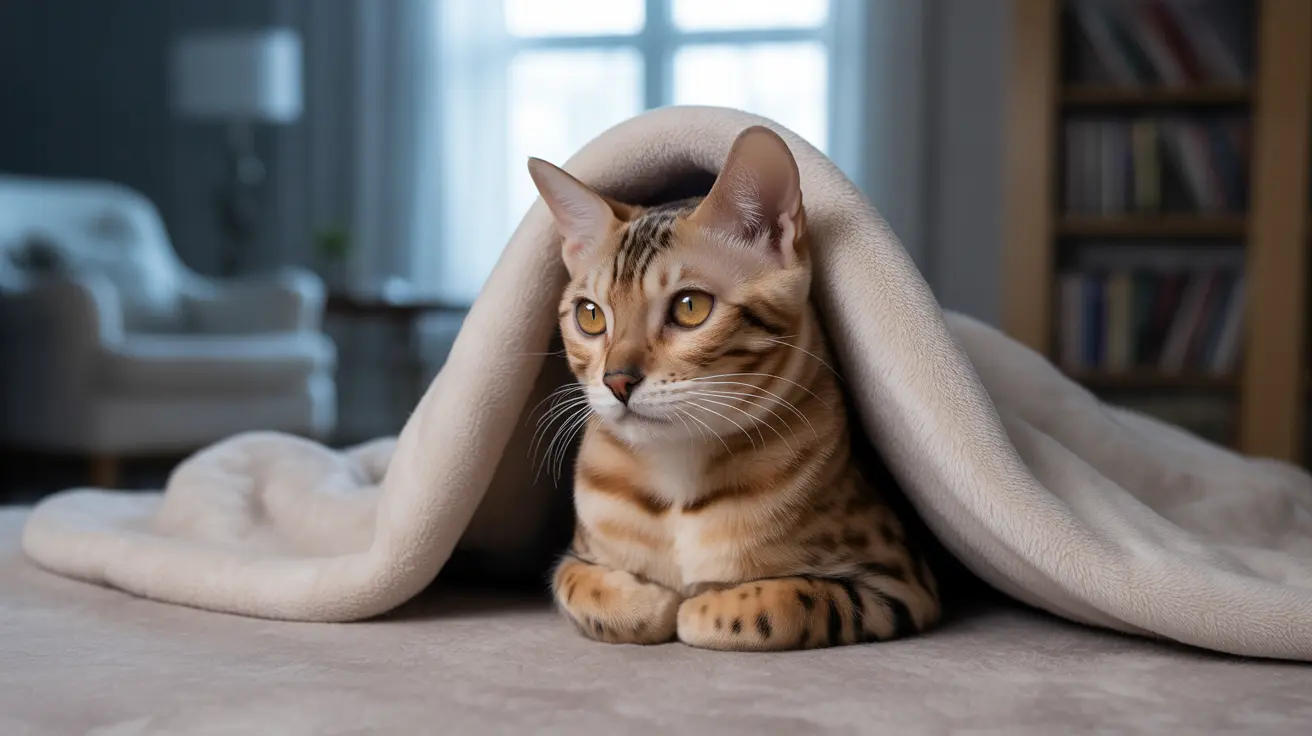Understanding Why Cats Hide After Vet Visits
Cats are territorial creatures who thrive on routine and familiarity. A visit to the vet disrupts their normal environment and exposes them to numerous stressors, including:
- Unfamiliar sounds and smells
- Handling by strangers
- Transportation stress
- Possible medical procedures
- Exposure to other animals
These experiences can overwhelm your cat's sensitive nature, leading them to seek safety in hiding once they return home. This behavior is actually a healthy coping mechanism that allows them to process their stress and regain their confidence.
Common Post-Vet Behaviors to Expect
Besides hiding, cats may display several other stress-related behaviors after a veterinary visit:
- Decreased appetite or refusing food
- Excessive grooming
- Changes in litter box habits
- Increased vocalization
- Temporary aggression
- Avoiding family members or other pets
These behaviors typically resolve within 24-48 hours as your cat readjusts to their home environment and feels safe again.
How to Help Your Cat Recover After a Vet Visit
Create a Safe Space
Prepare a quiet, comfortable area where your cat can retreat after returning home. Include:
- Their favorite bed or blanket
- Fresh water and food
- A clean litter box
- Familiar toys
Respect Their Need for Space
Allow your cat to emerge from hiding on their own terms. Forcing interaction can increase their stress and prolong their recovery period. Instead, maintain a calm presence and let them approach you when ready.
Managing Multi-Cat Household Dynamics
If you have multiple cats, the returning cat may face additional challenges. Their scent has been altered by the vet visit, which can confuse other household cats and lead to temporary tension. Consider these strategies:
- Keep cats separated initially if needed
- Use familiar scent exchanging techniques
- Monitor interactions until normal behavior returns
- Provide separate resources during the adjustment period
When to Be Concerned
While post-vet hiding is normal, certain signs warrant contacting your veterinarian:
- Hiding that persists beyond 48 hours
- Complete food or water avoidance
- Signs of pain or illness
- Aggressive behavior that doesn't improve
- Elimination outside the litter box
Frequently Asked Questions
Why does my cat hide after a visit to the vet?
Cats hide after vet visits as a natural response to stress and the need to feel safe. The unfamiliar experiences, scents, and handling at the vet's office can overwhelm them, making them seek security in a quiet, familiar space at home.
How long does it take for a cat to stop hiding and return to normal after a vet appointment?
Most cats return to normal within 12-24 hours after a vet visit, though some may take up to 48 hours to fully readjust. This timeline can vary depending on the individual cat and the nature of the vet visit.
What are the signs of stress or anxiety in cats following a veterinary visit?
Common signs include hiding, decreased appetite, excessive grooming, changes in litter box habits, increased vocalization, and temporary aggression or withdrawal from family members.
How can I help reduce my cat's anxiety and stress before and after going to the vet?
You can help by creating a quiet recovery space at home, using calming pheromone products, maintaining routine feeding times, and respecting your cat's need for space. Before visits, acclimate them to their carrier and consider using calming supplements recommended by your vet.
Why does my cat seem to distrust me or act aggressively after coming home from the vet?
This temporary behavior isn't personal; your cat may associate you with the stressful experience or be dealing with residual anxiety. This reaction typically resolves within 24-48 hours as they process the experience and feel secure again.






